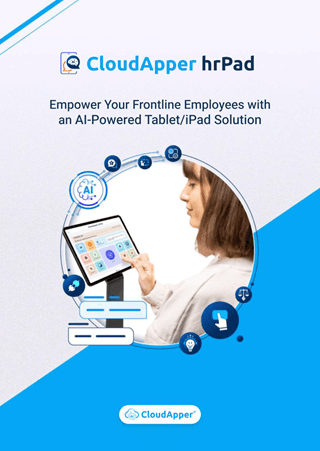Change is in the air. Over the last several years, there has been a tectonic shift in how companies manage their businesses. While there is no one factor that accounts for the move away from traditional management practices, there is no doubt that the availability of integrated flexible software solutions has eased the transition.
What is the big change? People are widely working in ways they only dreamed about before. Employees are working from home. Team members collaborate from across the country, and across the globe. Smart systems provide unprecedented levels of data while handling boring housekeeping details. We are finally realizing what was promised by the dawn of computers so many decades ago.
While it was a global bug locking everyone in their homes, cloud based no-code platforms opened the door to a realization that maybe not everyone has to work in the same room together in order to be productive, or need programming knowledge to develop innovative software solutions to demonstrate that remote, integrated digital solutions could make the new paradigm work over the long haul.
There are a number of advantages to employing a no-code platform.
Empower those who know.
One of the primary advantages of no-code software platforms is that it puts the implementation of solutions into the hands of those who know the problems. Too many companies rely on off-the-shelf software which cannot hit on specifics due to being designed for general use. These commercial solutions often require more time to be spent shoehorning the program into a particular problem domain than is spent actually solving problems. Even industry-specific commercial software has trouble meeting the specific needs of an individual company.
Larger businesses have long employed teams of software engineers to develop custom software tailored to a company’s particular needs. However, a staff of computer programmers does not come cheap, and it still involves a disconnect between those who face business-related problems and those developing the software tools to help solve them.
Spend time where it matters.
Having a centralized software platform allows staff to put time into what matters most, doing work that provides value to the company. With a company-wide system, data processing and communication can be streamlined across all departments, reducing wasted time. When each team works with a different software platform, too much effort is spent getting the information out of one system and delivering it to other teams working with entirely different software systems. Then back again. Factoring out this kind of process waste with a unified software platform can exponentially decrease loss of time, allowing personnel to spend more time solving problems.
Eliminate human error.
There is no getting around it, everyone makes mistakes. However, the beauty of an automated system is that many of the mundane, everyday tasks where human error is all too prevalent can be avoided. Besides, talented problem solvers need to concentrate their attention on challenges specific to their areas of expertise if the company is going to get the any value from their employment. An automated software platform handles the boring process details, freeing up team members to spend their time doing what they do best.
We are living in a golden age for both employers and the work force. Digital technology has finally realized the promise of remote work over an integrated platform automated to allow human resources to perform at their peak potential. No-code software systems empower problem-solvers to develop their own optimal tools. Turn-key cloud platforms integrate remote teams under a common workflow. And automated software tools handle mundane daily tasks so that valuable team members can pursue meaningful problems. The future is now.
See the power of no-code platform by yourself by contacting us now to learn all about it!


















